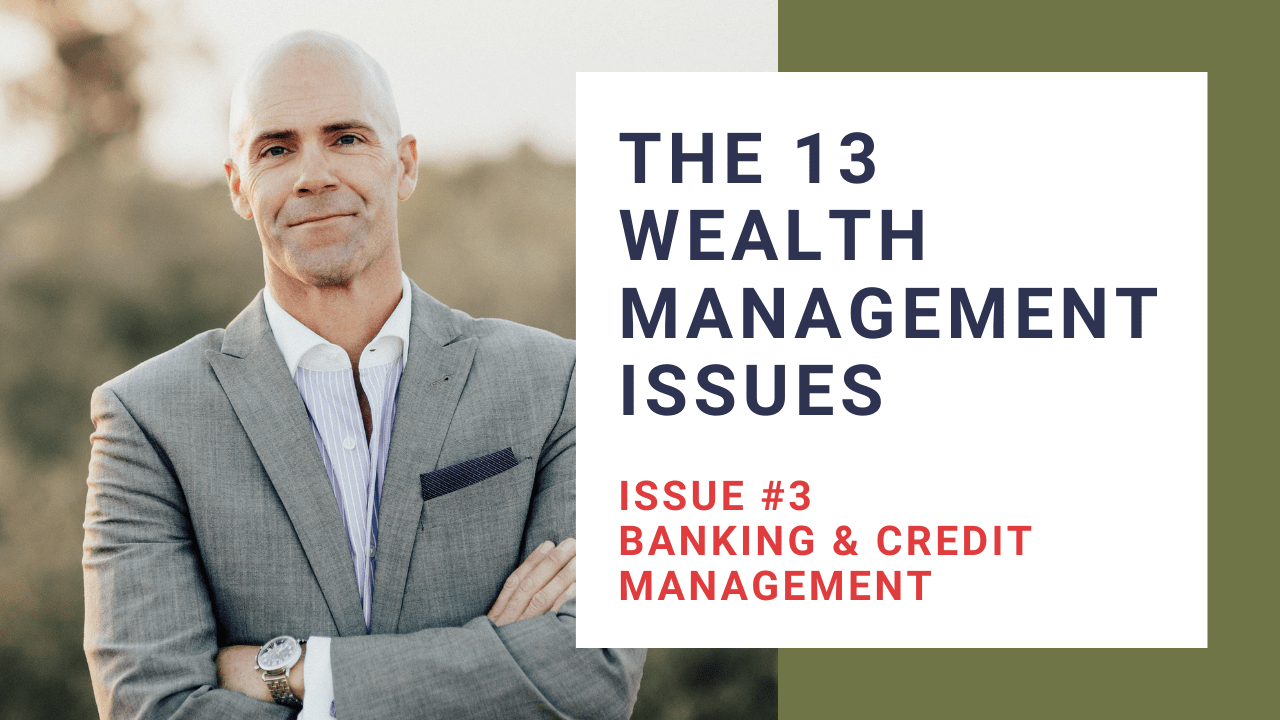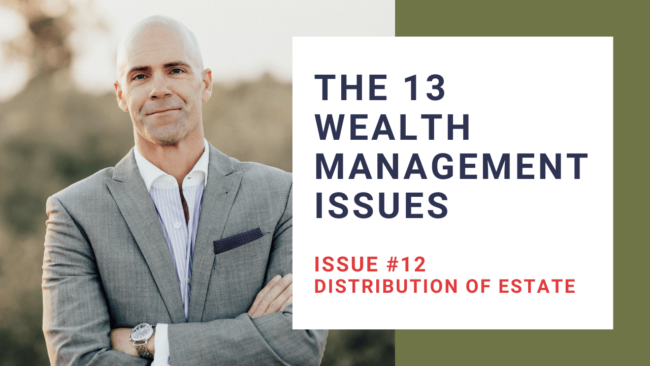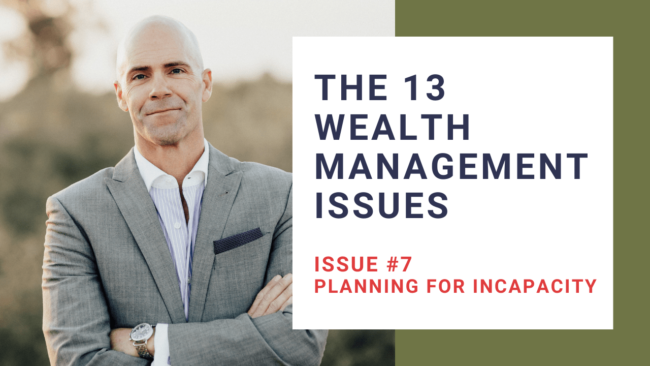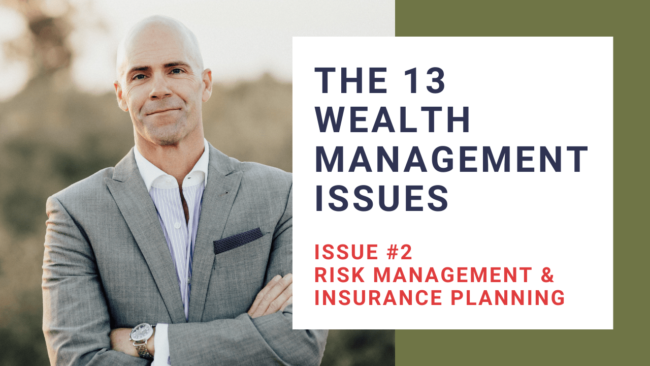
13 Wealth Management Issue #3: Banking & Credit Management
We hope you found our last entry on Risk Management & Insurance Planning to be helpful. Now we are moving on to our next 13 Wealth Management Issue to be mindful of: Banking & Credit Management. Typical conversations heard between advisors and their clients most often revolve around ways the client can benefit from specific investment strategies and services offered by the investment firm. While cash flow of your business or cash positions might be a passing conversation including, using debt or leverage appropriately; there are not many times where banking and or credit management would likely be a topic that investment managers want to explore. Why? These are often financial strategies they cannot participate in due to fee structures that are tied to the management of the assets. Short and long-term goals require capital and many business goals within your practice may revolve around borrowing in order to hit those goals. If your “holistic” advisor doesn’t discuss financial goals outside of investments and insurance, are they really being holistic? Are they really working in your best interest? Let’s keep going.
Banking & Credit Management
Number 3 out of 13 in our Wealth Management Issues Series
Firms like ours take a truly objective, financial planning-based approach. We could not make well-informed recommendations regarding your financial wellness if we didn’t understand full financial picture, understand your personal and professional goals, and learn about your feelings and thoughts on debt and leverage. To clarify the difference, debt is utilized for large purchases you might not otherwise be able to afford. Leverage should be considered an instrument whereby the margin is geared towards increasing ROI, Return on Investment…typically on a longer-term basis. Often, the primary drivers of usage integrate financial sensibility and emotional sensitivity; namely, feelings about debt.
There are five key questions to consider:
- What are your family and your practice’s short and long-term goals? The goal here is to understand how you plan to fund each goal. Cash? Debt? Realized gains from securities and investments?
- What are the cashflow needs of your family and your practice? How can debt be used to mitigate a cash crunch? Do we have access to particular cash sources to cover a short-term cash issue?
- In addition to personal and professional goals, are there financial goals that require investment of capital to create wealth? Is there a clear understanding of how liabilities can leverage wealth? It’s important to have a clear understanding of your perspective with respect to debt and how specific strategies may provide benefits.
- How are liabilities/leverage coordinated with your wealth plan? The coordination of these components MIGHT enhance returns if structured properly.
- Are you familiar with the relationship between tax efficiency and the utilization of debt? What are your thoughts and feelings about taxes? There are several potential options to evaluate: Residence – acquire/improve, HELOC, Investments, and properly structured cash value life insurance.
It’s no secret that interest rates are at historic lows. Firms and advisors that truly take a financial planning-based approach need to understand your goals, both personal and professional. There are only three primary economic engines, investments, insurance, or cash. True holistic advisors cannot ignore cash flow and credit. You should expect your advisor to discuss every aspect of your financial wellness in order for them to provide advice and guidance that is in your personal or professional best interest.
So, you might be thinking, what are the steps involved to determine if debt/leverage is appropriate for me. Ask yourself the following questions. First, how do you view debt? Is it a tool or something you must eliminate? What is your comfort level? Second, do you have in place a written cash flow summary that ensures coordination of liabilities/leverage and your wealth? Third, is the strategy appropriately structured such that you’re maximizing the leverage while incorporating maximum tax efficiencies? Finally, in the event of a short-term cash crunch, would it be preferred to have a line of credit or some form of cash available (so long as it doesn’t create disharmony).
Currently, the economic environment is pretty favorable towards debt options and credit is very loose. This being the case there are typically three changes people experience which may necessitate evaluating leverage options.
The bottom line is to understand your goals that will require short or long-term capital, determine your perspective on debt, and then have a comprehensive conversation to evaluate if particular strategies may provide you, your family and/or your business new opportunities.
When considering these issues, it’s important to ask yourself, how do any of these affect you, your family, and your goals? The following installments will cover each of these Wealth Management Issues in greater detail. Our hope is this series of chapters will provide not only an educational forum but also promote thought, leading to action…in a holistic manner, of course. Learn about our other 13 Wealth Management Issues here.
Watch our Whiskey & Wealth Wednesday video of this article:
If you would like to learn more about this subject please contact us and we’ll be happy to help.
By Anthony C. Williams, CWS, ChFC, MRFC, CLU | Investment Advisor Representative | President & Founding Partner of Mosaic Financial Associates & Orthopaedist Advisory Group | Securities and advisory services offered through Cetera Advisors LLC, Member FINRA/SIPC, a broker/dealer and a Registered Investment Advisor. Cetera is under separate ownership from any other named entity.







